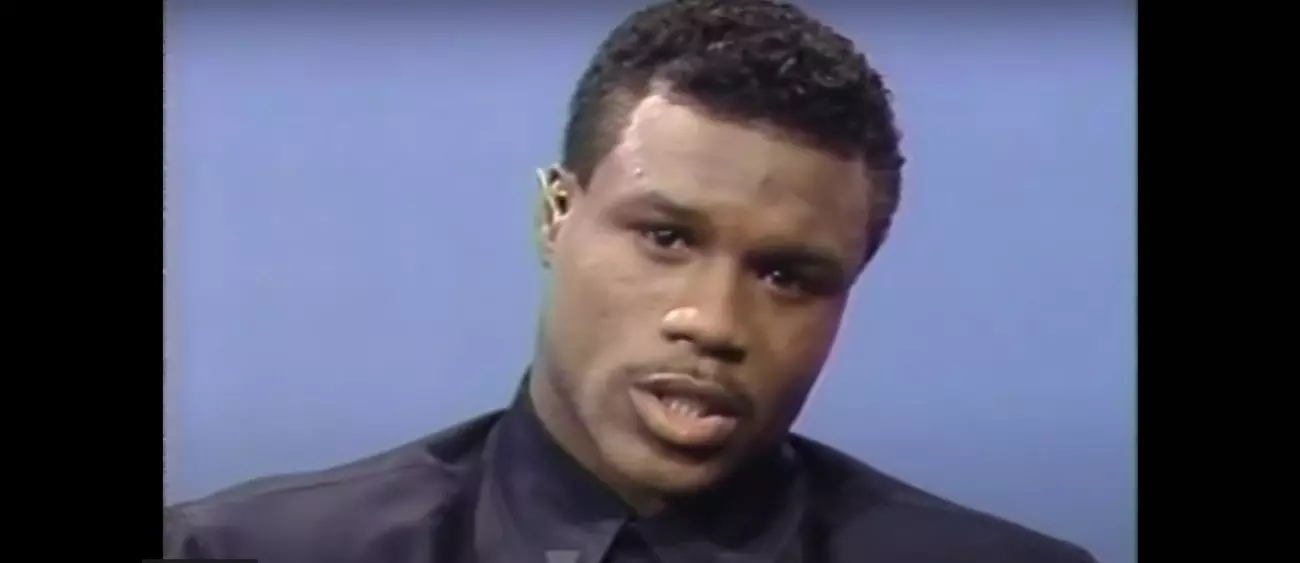Meldrick Taylor remains an intriguing figure in boxing history, embodying both the thrill of athletic achievement and the profound toll of the sport’s brutality. Although his career was marred by a heartbreaking loss to Julio Cesar Chavez in 1990, Taylor’s talent and tenacity have earned him a place among the greats of boxing, even if the circumstances of that defeat transformed the narrative of his life and career. In this article, we will delve into Taylor’s journey, analyzing his early successes, his defining fight with Chavez, and the lasting impact of his choices on his life post-retirement.
Born in Philadelphia, Taylor was immersed in a sport long before he stepped into the professional ring. With a stellar amateur record of 99 wins and only 4 losses, he quickly established himself as a force to be reckoned with. His astounding hand speed and boxing acumen earned him the moniker “T.N.T,” a fitting title given his explosive style in the ring. In 1984, he ascended to Olympic glory by securing a gold medal, a peak achievement for any amateur fighter. However, his motivations transcended medals and accolades; Taylor sought to prove he possessed the grit and heart typical of Philadelphia fighters, like the legendary Joe Frazier.
A spirited warrior, Taylor approached boxing not just as a sport but as a testament to his identity and a means to gain respect. His style often leaned toward close-quarters combat, willingly exchanging blows rather than relying solely on technique or speed. This propensity, while thrilling for fans, would ultimately have dire consequences for his long-term health and performance ability.
March 17, 1990, was a date that would forever alter the course of Meldrick Taylor’s career. Facing Julio Cesar Chavez in what was dubbed “The Fight of the Decade,” Taylor was on the brink of victory. He fought valiantly, showcasing the speed and agility that had been the hallmarks of his career. Most in attendance believed he had the bout in hand, leading on two of the three official scorecards when disaster struck with just two seconds left in the final round. An unforeseen turn of events saw Chavez mount a desperate comeback, landing a series of powerful punches that led to a controversial stoppage by referee Richard Steele.
The outrage that followed was palpable. Critics questioned the validity of the stoppage and whether Taylor had been given a fair chance to finish the fight. This loss not only shifted the accolades to Chavez, who solidified his place in boxing history, but it also marked the beginning of a long, arduous journey filled with consequences for Taylor.
In the wake of the Chavez fight, Taylor’s career faced a downward trajectory, punctuated by both personal and professional challenges.While he did achieve notable victories against fighters like Aaron Davis and Glenwood Brown, these wins did little to overshadow the shadow cast by his loss. Subsequent defeats, especially against Terry Norris and a rematch with Chavez, highlighted a significant decline in Taylor’s performance and prowess. The boxing community watched as a once-promising talent began to show signs of deterioration, both physiologically and cognitively.
The emotional toll of his career hung heavy over Taylor. He became a shell of his former self, battling with the demons of regret and the burden of what could have been had he opted for a more strategic style instead of engaging in relentless exchanges. The physical impacts of his fighting style, including slurred speech and diminished health, pointed to a potentially ‘shot fighter’—a term that no athlete wishes to become synonymous with.
Retiring in 2002 at the age of 35 with a record of 38 wins, 8 losses, and one draw, Taylor’s later years are marked by relative obscurity. While public appearances have become rare, those who followed his career continue to reflect on his undeniable talent and artistry in the ring. Today, as he celebrates his 58th birthday, one can only hope that Taylor finds solace in the knowledge of his exceptional career despite the lingering pain from a loss that changed everything.
Meldrick Taylor’s story serves as both a celebration of athleticism and a cautionary tale about the consequences that come with pursuing greatness in the unforgiving world of boxing. His legacy is entrenched in the sport and in the hearts of fans who remember him not just for his losses but for the indelible mark he left on the world of boxing. Even as time carries on, Taylor’s spirit remains a vital part of sports history—a testament to the duality of glory and sacrifice.

